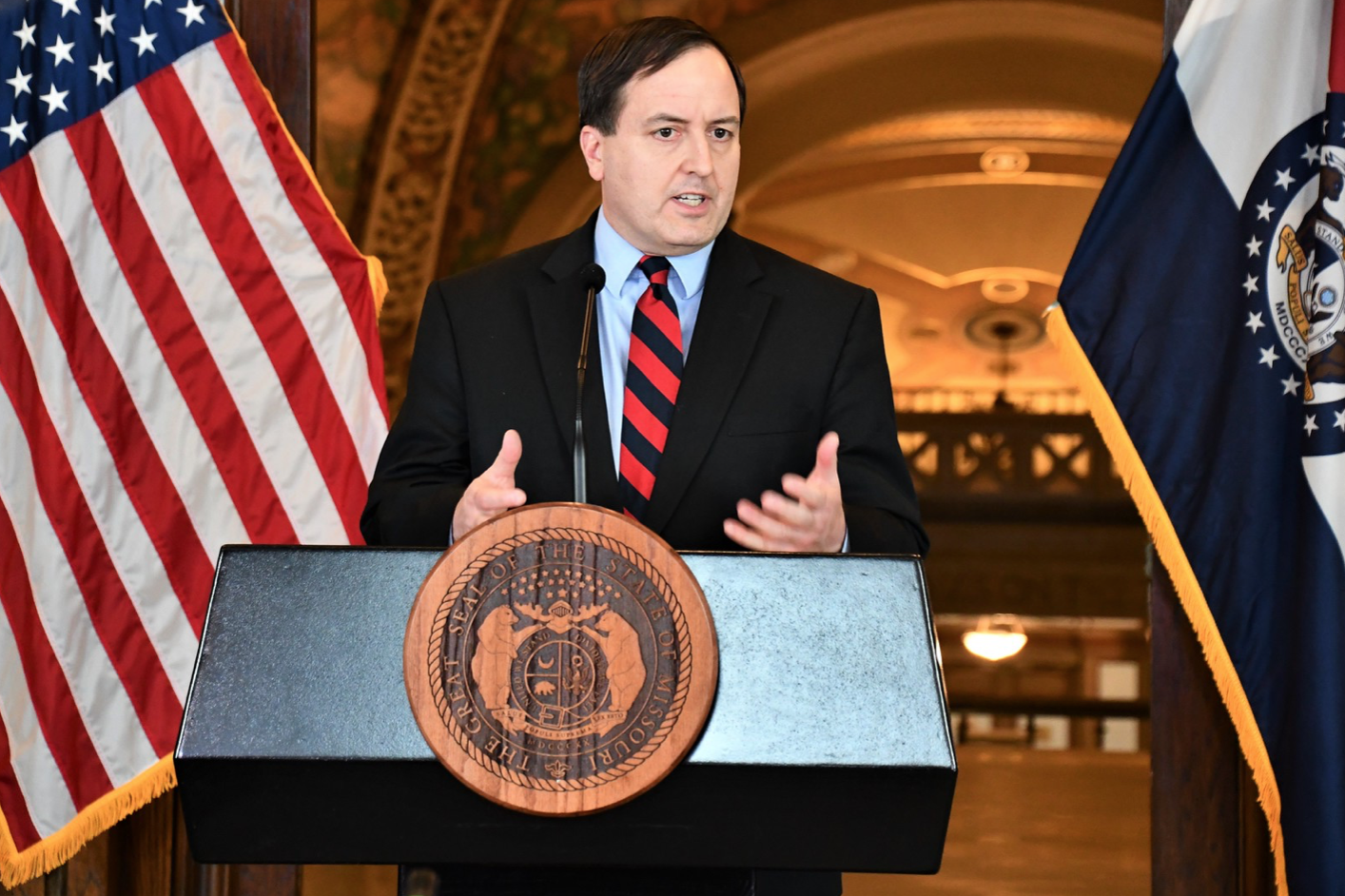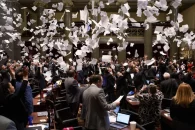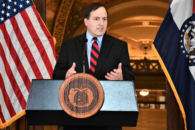An omnibus bill approved by senators just before the session’s close will give Missouri’s secretary of state greater authority when investigating alleged election offenses.
After making it through a conference committee, Sen. Dan Hegeman’s SB 631 was on deck Friday, the final day of session. The Senate passed the bill in a 25-5 vote with less than two hours remaining in the legislative session.
The conference report is nearly four dozen pages long and includes a bevy of election provisions, such as the allowance for individuals to vote absentee in 2020 if he or she has contracted or considered “at-risk” for contracting COVID-19.
But also nestled in the elections bill is a provision that gives Missouri’s secretary of state subpoena power when investigating suspected election offenses. It gives the state’s top election official the power to glean a bevy of information. The language says:
“The secretary of state or an authorized representative of the secretary of state shall have the power to require the production of books, papers, correspondence, memoranda, contracts, agreements, and other records by subpoena or otherwise when necessary to conduct an investigation under this section. Such powers shall be exercised only at the specific written direction of the secretary of state or his or her chief deputy.”
As it stands now, the secretary of state can only request documents and to interview individuals, Maura Browning, the communications director for Secretary of State Jay Ashcroft, told The Missouri Times. The change made in SB 631 would only pertain to documents, not individuals.
“We do need the tools to do the investigation,” Browning said.
However, some Democrats have voiced concern over how the change would impact elections.
“Most well run campaigns have some sort of absentee ballot outreach program, where the campaign assists voters with absentee applications and so forth. In addition, campaigns often assist voters in transportation to and from polling places,” a Democratic source noted. “While some of these documents may be currently available under the Sunshine Law, this newfound power by the secretary of state essentially creates open season for subpoenas to be delivered to campaigns on a variety of issues.”
“You have to ask yourself, ‘How long is it before a headline appears alleging rampant voter fraud and then subpoenas from the secretary of state drop the next day?’ Prosecutors already have the ability to investigate election offenses and subsequently bring charges if they so choose. This just creates more bureaucracy and a process to be tainted with politics.”
The bill had lost the backing of Ashcroft following the stripping of voter ID language during conference.
“Without the agreed-upon safeguards, I have grave concerns that this bill will make voting less secure and jeopardize the integrity of our elections,” Ashcroft, a Republican, said in a statement. “I call on legislators to either add the original language back to the bill or vote the current version down. No bill at all is better than passing bad legislation with permanent consequences.”
Omnibus bills, too, have been a point of contention as the legislative session, which was cut short by a global pandemic, comes to a close. The Senate decried “hidden” House amendments attached to bills and made the rare move to reconsider a Senate bill Thursday night.
This story has been updated.
EDITOR’S NOTE: For up-to-date information on coronavirus, check with the CDC and DHSS.

Kaitlyn Schallhorn was the editor in chief of The Missouri Times from 2020-2022. She joined the newspaper in early 2019 after working as a reporter for Fox News in New York City.
Throughout her career, Kaitlyn has covered political campaigns across the U.S., including the 2016 presidential election, and humanitarian aid efforts in Africa and the Middle East.
She is a native of Missouri who studied journalism at Winthrop University in South Carolina. She is also an alumna of the National Journalism Center in Washington, D.C.
Contact Kaitlyn at kaitlyn@themissouritimes.com.





















